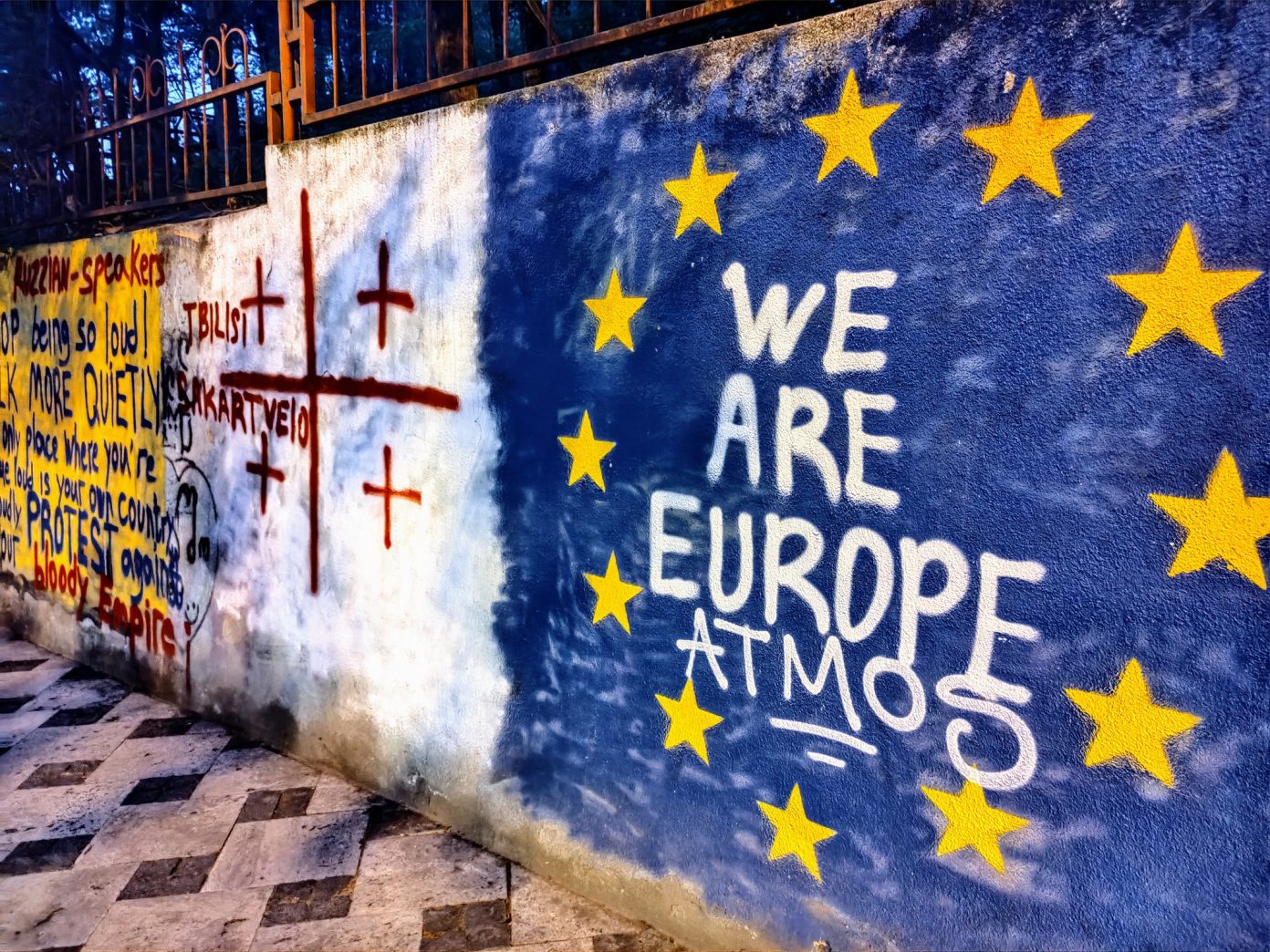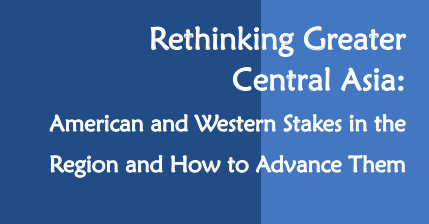A Political Inflection Point in Georgia

The Republic of Georgia faces a critical juncture ahead of parliamentary elections in October 2024 as escalating political tensions, driven by the ruling Georgian Dream (GD) party's increasingly authoritarian tendencies, threaten the country’s democratic future and its pro-Western trajectory. This situation demands a nuanced understanding of Georgia's complex political landscape and a strategic response from Western partners. Here, a number of trends are noteworthy.
The first is democratic backsliding and a consolidation of authoritarian power. Georgian Dream, once a self-identified social democratic reformist coalition, has embraced right-wing populism and consolidated power in recent years. Its controversial "foreign agent" law, which went into force on August 1st, is clearly aimed at silencing critical NGOs and media ahead of national elections, and represents a blatant attempt to curtail media freedom, target civil society, and suppress dissent.
These policies, which are closely aligned with Russian information operations in the region, are reminiscent of cyclical patterns in Georgia's contemporary history – entailing "democratic breakthrough, democratic advance, democratic rollback, authoritarian consolidation, regime weakening, and regime collapse." Today, the country appears headed for another round of the same. This pattern reflects entrenched challenges in Georgia's political culture, including a tendency towards centralization of power, a disconnect between elites and the broader population, and a zero-sum approach to politics where losing power is seen as an existential threat.
The second are the shifting power dynamics in Georgian society. A new generation, disillusioned by GD's policies and yearning for a European future, is at the forefront of today’s opposition, shifting the locus of resistance from traditional political parties to street protests. Youth see the West as Georgia's only viable path, but their impact is limited by their concentration in the national capital, easy disillusionment and high standards, as well as potential election apathy or disorganization. Despite these potential pitfalls, this generational divide creates a possible opportunity for a new political class to emerge, uniting youth activism with experienced civil society actors. This could happen, post-election, if the remnants of the old elite political class emigrate amid government crackdown.
Third, we are witnessing an erosion of public trust. In recent months, governmental actions have played on existing societal issues like corruption, inequality, and a sense of injustice, fueling widespread discontent and emigration. Nevertheless, the opposition is currently weak and disorganized, and has not shown any focus on these issues. Opposition dynamics continue to be largely centered on mostly unpopular personalities in the political elite, rather than any particular socio-political movement. However, popular discontent with GD has crested because of its anti-Western and anti-democratic positions, which gives even a fractured opposition a potential opportunity heading into the elections. The escalating use of force against largely peaceful protesters has only deepened the chasm between the government and the people. Emigration from Georgia doubled in 2023, primarily driven by those seeking work abroad. And Transparency International's Corruption Perceptions Index indicates a notable three point decline for Georgia over the past year.
Finally, there is a misunderstanding of how Georgians see "The West." U.S. foreign policy professionals often underestimate the deep-seated resentment towards the former ruling party, the United National Movement (UNM), and overestimate the depth of pro-Western sentiment in Georgia. The prevalent narrative of overwhelming pro-Western sentiment in Georgia, often quantified as 80-85% support, is simplistic and in some respects misleading, ignoring complex realities on the ground. While the pro-west moorings of the population are resilient, they are tempered by popular frustration with Western inattention and popular prioritization of local socioeconomic issues.
Western actors bear some responsibility for this state of affairs, often equating Westernization with superficial markers like proficiency in English. The West has also largely taken pro-west sentiments for granted, and shown little initiative to integrate Georgia into Euro-Atlantic structures – giving anti-Western actors an opportunity to gain ground. Moreover, for a certain segment of the Georgian population that is quite poor and lists economic issues at the top of its concern, support for the West is shallow. For these voters, the populist, right-wing narrative (stressing order, stability, unity, and control over culture,) may be more comfortable and understandable.
HIGH STAKES FOR THE FUTURE OF GEORGIAN DEMOCRACY
Against this backdrop, the upcoming parliamentary elections are crucial, with a high likelihood of GD resorting to fraud to maintain its grip on power. As such, the potential for post-election unrest and violence is significant, with a legitimate risk of external actors, particularly Russia, exploiting the instability for their own benefit. As a result, the U.S., historically (though unintentionally) indifferent to the nuances of Georgian politics, now faces a critical inflection point in its relationship with Georgia.
Here, a nuanced American policy – one that strengthens democratic institutions, imposes consequences for anti-democratic behavior, and doubles down on support for Georgia’s pluralistic development – would go a long way toward setting Tbilisi on the right path once more. By leveraging diplomatic, economic, and security tools, the U.S. and its allies can play a crucial role in supporting Georgia's democratic future. But this support must be coupled with a clear-eyed assessment of the challenges involved, and with a willingness to impose concrete consequences for democratic backsliding.
Ultimately, it remains up to Georgians to seize this moment and chart a course towards a more stable, prosperous, and democratic future. Washington’s job is to give them the tools to do so.
ABOUT THE AUTHOR:
Laura Linderman is Senior Fellow and Program Manager at the Central Asia-Caucasus Institute of the American Foreign Policy Council.
Rethinking Greater Central Asia: American and Western Stakes in the Region and How to Advance Them

Compatible Interests? The EU and China's Belt and Road Initiative
Stockholm Institute European Policy Studies
January 2020
Svante E. Cornell and Niklas Swantström
China’s economic development and global impact are tilting the economic, political and military balances that have shaped the world since the end of the cold war. One fundamental step in China’s global strategy is the infrastructure project BRI. In this report, Svante E. Cornell and Niklas Swanström analyse its impact on the EU’s neighbourhood as well as on the European project. (2020:1)
One step in China’s global outlook is the comprehensive infrastructure project Belt and Road Initiative (BRI), opening a clear set of crossroads for the EU. The BRI project was presented by the Chinese government in 2013 as a series of trade corridors by land and sea. One major part of the project aims to connect Europe and China through Central Asia.
In this report, Svante Cornell and Niklas Swanström deliver a thorough account of the BRI’s planned infrastructure and financial setup. The authors also analyse how these trade routes affect the EU’s Eastern neighbourhood and Central Asia in relation to the rule of law and the regional political-economic development. Finally, they consider what pressure the BRI exerts on the EU system and whether the interests of China and the EU are compatible.
One conclusion is that the EU has not payed enough attention to the geopolitical dimension of their relations to the countries on the Eurasian continent. Therefore, the authors suggest that the EU should focus more on European interests, and not only on norms and values.
CACI Forum with recording: A New EU Strategy for Central Asia: Pointing a Path for the U.S.?
A New EU Strategy for Central Asia: Pointing a Path for the U.S.?
In June 2019, the EU released a new strategy for Central Asia. This strategy was formulated in response to rapid changes in the region, ranging from China's Belt and Road Initiative, new reform initiatives across the region, and a new momentum for regional cooperation. What does this strategy mean for the EU's relations with Central Asia? And does this mean that the EU now leads the developed and democratic world in engaging with Central Asia, and is pointing a path forward for the US?
This Forum meeting marked the release of the Central Asia-Caucasus Institute's new Silk Road Paper on the subject, A Steady Hand: The EU’s 2019 Strategy and Policy Toward Central Asia.
Speaker: Svante Cornell, Director, Central Asia-Caucasus Institute at AFPC
Moderator: S. Frederick Starr, Chairman, Central Asia-Caucasus Institute at AFPC
Where: Middle East Institute: 1763 N Street Northwest, Washington, DC 20036
When: Wednesday, December 5, 2019 from 2:30 - 4:00 pm
America, EU, Japan: Time to Reunite Afghanistan with Central Asia
By S. Frederick Starr
With respect to Afghanistan, the United States, Europe, Japan, South Korea and the major international financial institutions are all caught in a time warp. Dating back a century and a half, this distortion today impedes Afghanistan’s development as a normal country. No less, it helps isolate the other countries of Central Asia from a nearby major market, the Indian subcontinent and Southeast Asia, and pushes the other countries of Central Asia into a one-sided relationship with their former imperial overlord, Russia. It’s time to correct this long-standing mistake.


